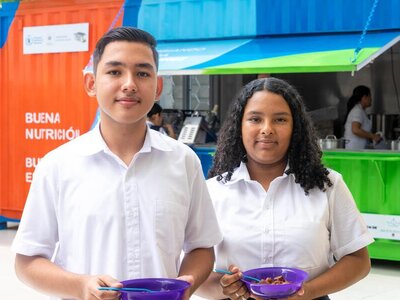El Salvador
- 27.3 percent
- of the population live in monetary poverty
- 38%
- of the population live in rural areas
- 6 million
- population
El Salvador has improved its food security, nutrition, equality and security in recent years, while reducing poverty.
However, it still faces challenges, such as limited access to food and nutrition, limited job opportunities and low incomes for many population groups.
The country is highly vulnerable to the effects of an erratic climate. Situated on the Dry Corridor, phenomena like droughts and tropical storms cause significant damage and losses to crops and other livelihood sources.
Access to food has worsened, leading to negative coping mechanisms like smaller meals or selling belongings.
The World Food Programme (WFP) has adopted an innovative food systems approach that spans the entire value chain – from production, processing and distribution, to consumption. It involves helping people access adequate food and nutrition, and resilience at the community level following emergencies.
In partnership with the Government and the private sector, WFP promotes women's and youth economic empowerment through better employment opportunities, enhances emergency preparedness, strengthens school meal programmes, and creates opportunities for entrepreneurship.
What the World Food Programme is doing in El Salvador
-
Emergency response
-
WFP provides food assistance to people affected by multiple crises, such as droughts, floods and tropical storms, and the socioeconomic impact of external factors such as global food-price increases. WFP supports early-recovery activities that equip beneficiaries with the technical skills to produce food and help diversify their livelihoods. Productive assets, including family and community gardens, are built using climate-smart methods such as drip irrigation, rainwater harvesting, and solar-pump systems.
-
Strengthening food systems
-
National capacity strengthening
-
Enabling partners
El Salvador news releases
Go to pagePartners and donors
Find out more about the state of food security in El Salvador
Visit the food security analysis pageOperations in El Salvador
Contacts
Office
Bulevard del Hipódromo No. 738, Colonia San Benito, San Salvador, El Salvador
San Salvador
El Salvador







